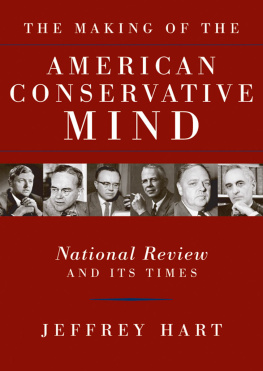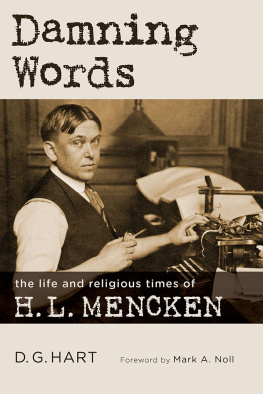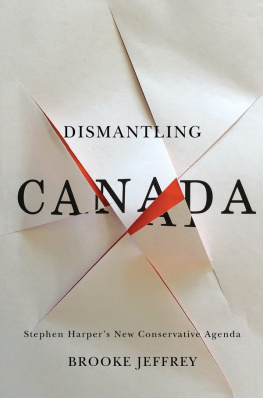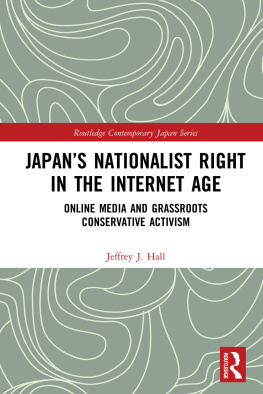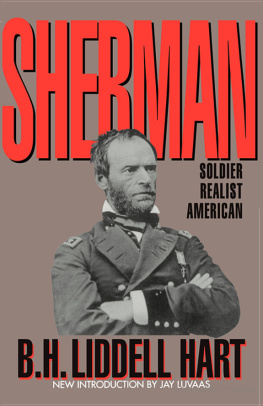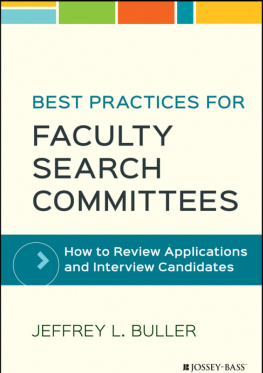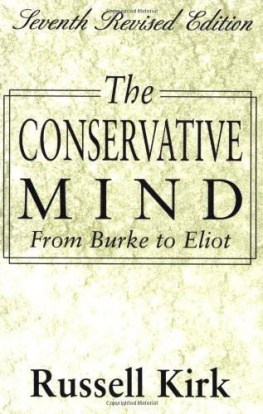Acknowledgments
W ithout William F. Buckley Jr., National Review would not have existed. His cooperation has also been invaluable in the writing of this book. Yet this history of National Review during its first half-century is in no sense an official history, as will be more than evident to the reader. Throughout, the evaluations and judgments are my own, and they come from a conservative perspective I would characterize as Burkean, yet interpreted for the American situation. I confess to a fondness for gossip, which, indeed, is a conservative genre. Gossips do not want to change the world; they want to enjoy it.
The learned help of my editor at ISI, Mark Henrie, has been enormously useful. He is a stylist, a scholar, and a political theorist; he has focused my mind on important issues such as theology, abortion, and political philosophy and otherwise has been a valuable guide. But my conclusions are not necessarily his. I have known Mark since his undergraduate days at Dartmouth and am not surprised by his brilliance now. Priscilla Buckley had the idea for this book; she and Linda Bridges have helped immensely with their inside knowledge of the history of the magazine. Rich Lowry, current editor of National Review, has been forthcoming with information, not only about the magazine since the Clinton yearsClinton being the subject of his fine history, Legacybut helpful also about the current editorial positions of the magazine.
As well as serving as a senior editor at National Review, I am de facto poetry editor, that feature having been reestablished in 2002 after a long hiatus since Hugh Kenner handled it in National Reviews earliest days; Books editor Mike Potemra has been splendidly cooperative there. John Virtes, research director at National Review, has been ever willing to provide valuable help. Ed Capano, publisher of the magazine, maintains an expert eye on its entire operation and has been generous with his time and knowledge of its operations, circulation, and many other matters. My thanks to all.
Jeffrey Hart
Lyme, New Hampshire
August 2005
Preface
T he history of National Review represents a Quest Narrative: the quest for a politically viable and thoughtful American conservatism. The journey is difficult, because it involves the search not merely for political positionswhich are, after all, ephemeralbut for the underlying basis upon which such positions ought to be derived: which is to say, abiding principles. This history of National Review is thus, in one sense, a course in how to think, which is much more important than transitory advocacy, in which one might be correct by chance, or by echo.
The journey recorded here is far from tranquil, since it has sometimes involved throwing much overboard, and this entails a continuing struggle to discipline desire with a sense of changing social, economic, and scientific actuality. As the historian here, I have been educated myself, first as a reader of the magazine since 1955, then as a senior editor beginning in 1969, and most recently as a reader of the entire corpus of the magazine in its very heavy forty-nine bound volumes. I have sometimes felt more like a foreman than a writer. To come to my judgments, I have compared what National Review said on a given occasion with what the relevant historians now can tell us about it. Hell for opinion journalists must consist of the perpetual re-reading of last years editorials.
Throughout the history of National Review we find a struggle going on, in diverse ways, between Idea and Actuality. Success is sometimes achieved, as Idea adjusts to Actuality, but sometimes there is a lurch back toward the Idea at odds with Actuality: utopianism. A nonnegotiable maxim emerges from a fixed Idea, or many fixed Ideas, often parading as principles, but when these are excessively abstract they become ideology, the lethal enemy of thought. To think, as in another connection the great West Point football coach Earl Red Blaik once said, means You have to pay the pricethat is, the price in pain and sorrow as favorite notions go overboard when contradicted by the facts. Reading the books that have lasted acclimates one to a sense of changing, surprising, disappointing, and joyful Actualitya vale of laughs as much as a vale of tearsand also requires a sense of readiness and flexibility in the face of changing circumstances. Change is part of Actuality, and the struggle against Actuality is an uneven contest.
When Idea becomes divorced from Actuality, the result is fanaticism, the wings of discourse beating in a void. Over the entrance to the first of the three kingdoms in Dantes Divine Comedy stands this forbidding notice:
Abandon all hope, you who enter here.
Fortunately, the journey the reader is about to take with this book will not be as arduous as that of the pilgrim Dante in that great poem, because National Review has pioneered the journey already. The historian who tells this story of National Reviews quest has himself been shaped in good measure by reading the magazine from November 1955 through the present. So what judgments are passed along the way amount to National Review examining itself. In this narrative, the pilgrim magazine followed the guide James Burnham for much of the way, as the pilgrim Dante followed the guide Virgil, who brought the pilgrim much of the way up the cleansing Mountain, but unfortunately dropped away before the journey ended. Similarly, the guide Burnham leaves part of the way through the journey, even as the helmsman Palinurus does in Virgils earlier epic.
So, reader, let us now take the journey together through the refining fire, the sign above our first gate reading:
Abandon hopebut not quite all hopeall you fanatics, dogmatists, single-issue obsessives, all you wild-eyed apparitions with straws in your hair, all you who have forgotten that man is neither angel nor brute, and through the disciplines of the great historians, lasting books, and alertness to experience, learn prudence, measured skepticism, and other sober virtues, which in politics translate into consensus government through the deliberate sense of the governed. For some, the way will be hard, but fare forward, voyagers! and avoid the whirlpools of nonsense and the fever swamps of prefabricated thought.


